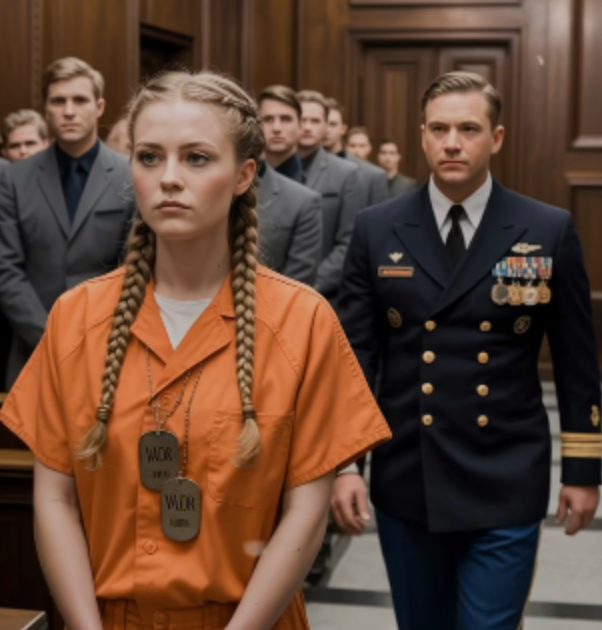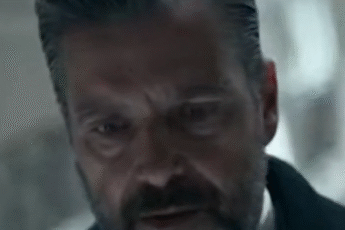The heavy doors of the courtroom swung open, and the sound of footsteps echoed against the wooden walls. Every eye turned toward the young woman in an orange jumpsuit, her wrists bound in cold steel. She had been labeled, accused, and dragged into court like a criminal. But beneath the prison uniform beat the heart of a Navy SEAL sniper—one who had risked everything for her country.
The judge’s gavel struck. Whispers filled the air. To many in the room, she was already guilty. Her calm expression, however, told another story. Her eyes didn’t show fear; they showed discipline. Even as the handcuffs cut into her skin, she stood with the bearing of a soldier who had been through battles far harsher than this.
Suddenly, the door at the back of the courtroom opened again. The room stilled. Into the silence walked a man in full uniform—an admiral, his medals gleaming under the dim lights. His presence carried the weight of decades of service, sacrifice, and authority. He didn’t need to say a word. Everyone knew this was no ordinary visitor.
The admiral’s eyes locked on the young sniper. For a moment, it felt as though the years of military tradition, brotherhood, and unspoken loyalty between warriors filled the space between them. Then, with steady steps, he walked forward until he stood before the judge.
“Your Honor,” the admiral’s voice rang out, deep and commanding, “this woman is not a criminal. She is a decorated SEAL sniper who has served this nation with honor and saved countless lives in silence. The chains on her wrists are an insult not only to her but to every man and woman who has ever worn the uniform of our country.”
Gasps rippled across the courtroom. The lawyers shifted uncomfortably. Even the judge hesitated. For the first time since the trial began, the balance of power shifted. The courtroom wasn’t looking at a prisoner anymore—they were looking at a soldier who had bled for freedom.
The admiral continued, his voice steady: “She followed orders when no one else could. She faced enemies when no one else dared. And today, she stands accused, not because of guilt, but because the truth of her mission remains locked in shadows.”
The silence that followed was heavier than the gavel itself. The jury glanced at one another, uneasy. The guards loosened their grip on her arms. And in that moment, the entire room understood—the story was bigger than the trial, bigger than the accusations.
The SEAL sniper wasn’t just fighting for her freedom. She was fighting for the dignity of every soldier who had ever been misunderstood, misjudged, or silenced.






